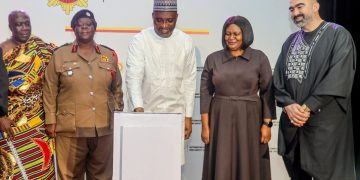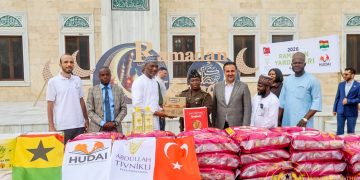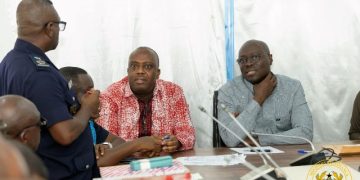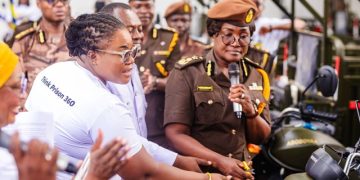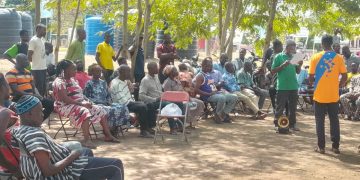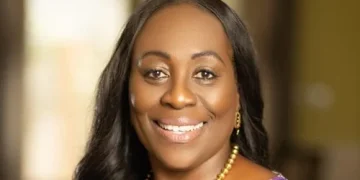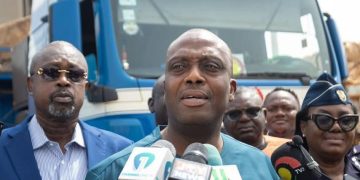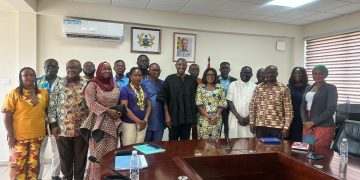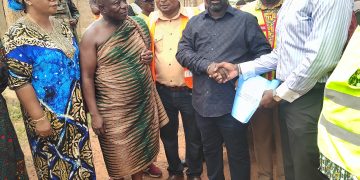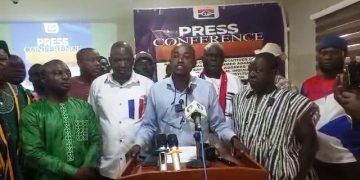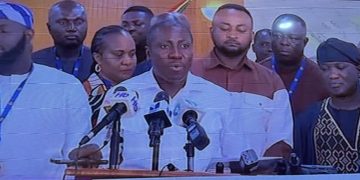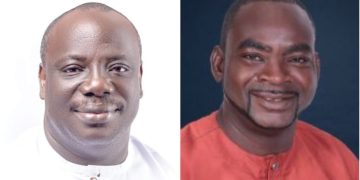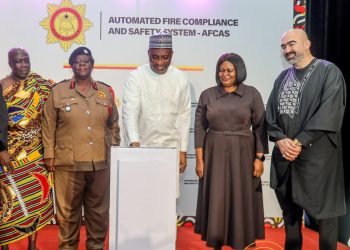With less than 90 days until Ghanaians head to the polls, a new Global InfoAnalytics poll has revealed widespread dissatisfaction with the country’s current trajectory. According to the survey, which was conducted by phone across all 16 regions, 73% of voters believe Ghana is headed in the wrong direction, while only 20% believe it is on the right track. Seven percent of respondents expressed no opinion.
The poll, which surveyed 1,112 voters between August 26 and September 7, 2024, also found that 63% of voters disapprove of President Nana Akufo-Addo’s performance, with only 30% approving, and 7% having no opinion. In terms of the governing party’s overall performance, 53% rated it as poor or very poor, while just 6% described it as excellent.
Standard of Living and Corruption
The economic struggles facing the country were also reflected in the poll results, with 55% of voters saying their standard of living has worsened compared to a year ago, while only 20% reported improvements. Nineteen percent said their living standards had remained the same, and 7% did not express an opinion.
Corruption was another major concern, with 60% of voters saying it had worsened, compared to 17% who felt it had improved. Sixteen percent said there had been no change, and 7% had no opinion.
Concerns About Electoral Violence and Confidence in Security
With the 2024 general election fast approaching, 77% of voters expressed concerns about potential electoral violence. However, the poll also found that 70% of voters have confidence in Ghana’s security services to manage the situation, while 22% did not share this confidence.
Confidence in the Electoral Commission is more mixed, with 58% expressing faith in its ability to manage the election, while 30% did not have confidence in the commission, and 12% had no opinion.
Voter Priorities and Influencing Factors
When asked what issues would have the greatest influence on their voting decisions, 54% of voters ranked the past performance of political parties as the top factor, followed closely by the current economic conditions (53%). Other important factors included the credibility of candidates (39%), party manifestoes (20%), and other personal reasons (18%).
In terms of voter priorities, the economy and jobs topped the list, mentioned by 86% and 81% of respondents, respectively. Education was the third most important issue, cited by 40% of voters.
Support for Leading Candidates
When voters were asked which of the leading candidates they believed best understood and cared for people like them, former president John Dramani Mahama (JDM) led with 49%, followed by Vice President Dr. Mahamudu Bawumia (DMB) with 28%. One percent of respondents supported Alan Kwadwo Kyerematen (AKK), while 2% favored other candidates, and 20% said none of the candidates cared for people like them.
In terms of voting intentions, the poll showed that Mahama leads with 50% of the vote among all voters, compared to 29.6% for Bawumia. Kyerematen garnered 1%, while other candidates received 0.5%, and 10.5% of voters were undecided. Among likely voters, Mahama’s lead expands to 53.3%, with Bawumia at 31.6%, and 11.2% undecided.
Undecided Voters and Party Loyalty
Of the undecided voters, 70% identified as floating voters, while 11% were supporters of the ruling New Patriotic Party (NPP), 1% were from the opposition National Democratic Congress (NDC), and 21% did not disclose their party affiliation.
The poll also found that 12% of NPP voters said they would vote for Mahama if the election were held today, while 81% said they would vote for Bawumia. Among NDC voters, 97% would vote for Mahama, with just 1% supporting Bawumia.
Among floating voters, Mahama leads with 55%, while Bawumia trails with 12%, and Kyerematen holds just 1%. A significant 27% of floating voters remain undecided.
Poll Methodology
The poll, which has a confidence level of 95% and a margin of error of ±2.77%, was conducted using live Computer Assisted Telephone Interviews (CATI). The sample size included 1,112 respondents, with a success rate of 94.24%. The sample distribution was 32% NPP, 30% NDC, 28% floating voters, 1% other parties, and 9% who did not disclose their affiliation.
As Ghana approaches the 2024 elections, the results suggest widespread concern about the state of the nation, with the economy, corruption, and the performance of the government dominating voters’ concerns. The coming months will be crucial for the leading candidates as they work to solidify their support and sway undecided voters.
Below is the research report:
Source: www.kumasimail.com


